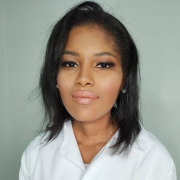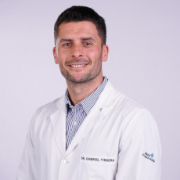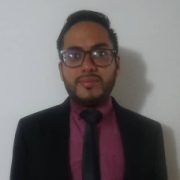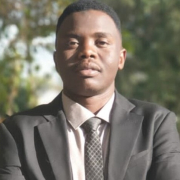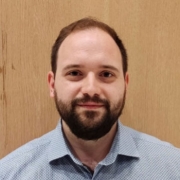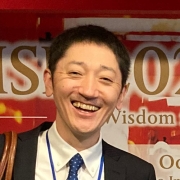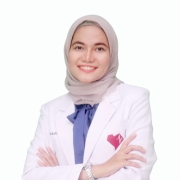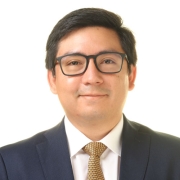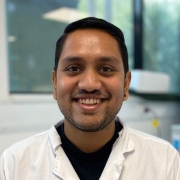How did you become interested in research relating to Hypertension?
I joined my first lab in my sophomore year of college. I learned that the most popular area in academia and industry is cancer/tumor study for its high mortality and morbidity rates. The core cause is fear. But fewer people fear cardiovascular disease (CVD). Maybe it’s too common. People already get used to it. However, they don’t know the CVD is an assassin. Over 17.9 million people die each year from CVD. They don’t realize that CVD is the lead killer in all diseases. To me, studying on cardiovascular disease is much important than the others. Before I made the decision of selecting the Ph.D. program, I joined the institution of hypertension and nephrology at Sun Yat-Sen University in China as a research intern. In there, I learned that hypertension is the most important modifiable risk factor for cardiovascular morbidity and mortality.
Describe your research & the program/lab (info of your supervisor) that you are in?
My research focuses on understanding the renal functions in cardiovascular disease. Particularly the role of (pro)renin receptor (PRR) in regulating water and sodium balance. These studies have resulted in eight peer-reviewed first-author or co-first-author publications in prestigious journals including JASN, PNAS, JCI Insight (accept), Hypertension, BMC Medicine, AJP-Renal, etc. These series of studies have uncovered the novel roles of PRR in renal control of fluid homeostasis and blood pressure. I joined Dr.Tianxin Yang’s lab at the University of Utah in 2013. My supervisor, Dr.Yang, is an outstanding and well-funded expert in the area of renal physiology. His long-term interests are renal hormonal control of fluid metabolism and blood pressure with an emphasis on prostaglandins, nuclear receptors, and (pro)renin receptor. He is a successful supervisor with a demonstrated record of research and training.
What do you consider to be your substantial scientific contribution so far (provide PubMed PMID if possible)?
The most important contribution is identifying the physiological role of collecting duct PRR and its soluble form, sPRR, in regulating water and sodium balance (PMID: 27000064; 26984496). These findings have contributed to our fundamental knowledge of how (pro)renin/(pro) renin receptor regulate sodium-water balance and local renal RAS, thus blood pressure.
What is your favourite manuscript from a lab other than your own (provide PubMed PMID if possible)?
My favourite manuscript is “Collecting duct-specific deletion of peroxisome proliferator-activated receptor gamma blocks thiazolidinedione-induced fluid retention. (PMID: 15956187) ” This paper uncovers the fundamental mechanism of rosiglitazone-induced edema. Rosiglitazone, the insulin sensitizer, is a powerful medication for diabetes with a severe side effect of plasma volume expansion. This cause the limitage usage of this class of drug. The manuscript published in PNAS directly benefit clinical practice.
What facilities are essential for your research?
Guangzhou Medical University, China; Sun Yat-Sen University, China; and University of Utah Health, U.S.A.
Where do your research strengths lie? Why? What are your research weaknesses? How will you improve?
I enjoy reading stories, analyzing data, and dig the connection between the data and the truth. I love to share the ideas with my colleagues and receive different kinds of feedback. Also, I have golden hands to perform the experiments great and in time.
My weakness is over-interpretation of the data and overly optimistic. The technical weakness is writing in English. The rigorous postdoctoral training will help me deal with these issues.
Describe your unforgettable (proudest) moment in science, and the most challenging situation that you have had to overcome (lessons learnt) so far?
My proudest moment to date was Dr. Boye L. Jensen wrote editorials to introduce my work published in JASN which uncover the role of the prorenin receptor in regulating water balance.
The most challenging situation I have had to overcome is our scientific opinion conflict with the experts in the field. It takes my colleagues and I a lot of time to convince others via publishing papers in journals and presented in conferences.
At which conference did you first present? How was your experience?
My first oral presentation was at the 2014 AHA Hypertension Scientific Session. My overall experience has been amazing. I think I did really well that time with no nervous. Presentation in hundreds of people is a great experience.
What upcoming conferences will you be attending, and what is the furthest distance that you have traveled for a conference?
The upcoming conferences are 2019 EB meeting and 2019 Hypertension Scientific Sessions.
The furthest distance I have traveled is 2018 ISH conference.
How did you learn about ISH/NIN and its activities?
I learned about the ISH from my supervisor, Dr.Tianxin Yang. He is an active member in ISH.
What area(s) do you wish to specialize in the future?
Nowadays, the topic about hypertension becomes more and more complex. A lot of debate and conflict happened. The hypertension clinical guideline had changed. Even more, the research mode is much different with years ago. I wish to apply the methods of data science to connecting the basic research and clinical research.
Who is your role model in Science? Why?
Ten years ago, Dr.Xiaohua Wang, the PI of my first joined lab, is my role model. She taught me what Science is. Five years ago, Dr. Zi Li, the PI of my second joined lab, is my role model. She taught me how to perform the science. Currently, Dr.Tianxin Yang is my role model. He taught me how to keep balance and make a choice while performing the science.
What are your scientific goals? Advise for talented emerging scientists?
My long-term career goal is to become an independent investigator in the field of cardiovascular diseases and hypertension. To make this possible, I am focused on publishing reliable data, providing novelty insight view, obtaining grants, and establishing the connection with other researchers. My advice for emerging scientists is that communication with your colleagues is the most important.













